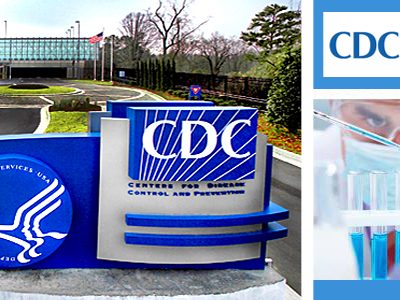Will Deregulation Grow the Economy?
The Trump plan of deregulation and tax cuts has been tried. It didn’t work.
President-elect Trump has promised to unleash economic growth by cutting taxes and regulation. In terms of regulations, he has said:
“One of the keys to unlocking growth is scaling-back years of disastrous regulations unilaterally imposed by our out-of-control bureaucracy.
“Regulations have grown into a massive, job-killing industry – and the regulation industry is one business I will put an end to.”
Cut taxes and regulation, boost the economy? Is Trumponomics going to work?
It’s been tried, in a big way, and it seems to have failed in a big way. The pilot project for Trumponomics was Kansas. According to Governor Sam Brownback, the formula of drastic tax cuts and deregulation was supposed to ignite the economy. He even established an Office of the Repealer to eliminate regulations. What has been the impact?
I’m not the first to point out the economy failed to respond as promised. Rather than showing exceptional job growth, Kansas job growth lags neighboring states. The state also lags the region in economic growth, private sector employment growth, and wage growth. In the meantime, the state’s credit rating has been downgraded repeatedly and is now among the lowest in the nation.
Among the government programs hard hit by cuts has been the environmental agency, whose budget has dropped 14% since 2011. In comparison, the budget in neighboring Oklahoma (hardly a hotbed of environmentalism) has stayed flat. Policy developments have also been negative. In 2015, Kansas repealed its renewable portfolio standard because utilities weren’t on-track to meet it. If there’s been any economic impact of these policies, it seems to have been negative.
In contrast to Kansas, California has had progressively stricter regulations on energy, with no apparent harm to the economy. Despite the nation’s leading climate change program, not to mention enthusiastic embrace of Obamacare and some tax increases, California is heading economically upward, while Kansas stagnates.
Journalists seem to be fond of talking to a couple of people in a bar – for some reason, that seems to be the place journalists spend most of their time talking to people – from which the journalists draw large conclusions. That’s not exactly solid empirical research. Similarly, looking at one or two states is illuminating, but is not anything like definitive. But more rigorous economic research seems consistent with what we see in Kansas.
As I explained in a May 2015 post, a series of careful empirical studies have shown only small effects of environmental regulation on employment — at most only a few percent even in the most impacted industries and areas. Compared to the overall size of the U.S. labor market, the effects are negligent. (For some other evidence, see this post from five years ago.) This conclusion is bolstered by another line of evidence. If environmental regulation were a big drag on business, we would expect it to be a major factor in facility location decisions. In other words, the “race to the bottom” would be very powerful. But, the evidence has been clear for a long time environmental regulation is not a major drive of location for industry, except in those with exceptionally high levels of environmental impact. Labor costs are much more important. Small businesses do worry about the burden of regulation, but it seems to be local permits that cause them problems, not environmental regulations.
If Trump’s program of deregulation and tax cuts could achieve high growth, rising wages, and middle-class prosperity, there might be an argument that the trade-offs were worth it. But there doesn’t seem to be much of a tradeoff, because the economic benefits seem likely to be minor at best, if they exist at all.
In other words, what we’re likely to get from the massive tax cuts and deregulation that Trump promises is what Kansas got: nothing.
Reader Comments
9 Replies to “Will Deregulation Grow the Economy?”
Comments are closed.







Dan said;
“…..If environmental regulation were a big drag on business, we would expect it to be a major factor in facility location decisions….”
Dear Dan,
Burdensome environmental regulations are one of the primary reasons why businesses and people are leaving California and moving to Texas. Here in Texas there is massive new development projects – new homes, new communities, major roads and infrastructure projects, new industrial facilities, new schools, shopping centers, office buildings and plenty of good jobs for everyone who wants to work. California is way behind Texas in economic development.
California may offer some high paying jobs in Silicon Valley but overall the state is a miserable curse of human despair and hopelessness.
First, my impression is that the reason for reducing taxes and regulation is profit, not jobs. Second, I think what we’re likely to get from massive tax cuts and deregulation is less than nothing – a continuation of Trump’s pattern of bankruptcy, moral and economic.
In 1999 economist Eban Goodstein wrote a book, “The Trade-Off Myth: Fact and Fiction About Jobs and the Environment.” In it he discusses and refutes three types of jobs-environment trade-off myths: (1) cyclical unemployment (chapter 2), (2) layoffs and plant shutdowns (chapter 3), and (3) manufacturing investment fleeing overseas (chapter 3). Later in chapter 7, he discusses seven Fictions and their countervailing Facts. He concludes thusly:
“The larger point here is that on a planet whose population is set to roughly double over the next fifty years,
ecological issues *should* increasingly dominate the policy agenda of government. However, if our economic
system continues to fail us in terms of providing us a reasonable level of income security, then each and every
legislative effort to build a sustainable future will be politically vulnerable to jobs-environment blackmail,
regardless of the facts of the matter.” (p. 176)
We appear to be stuck in a mindset where the environment is still considered to be free, limitless, and separate from humanity even though many indicators point to conditions of overshoot (agriculture, mining, fish catch, forest harvest, pollution emissions, land development, and biodiversity loss). Our ecological footprint is sure to grow at least in direct proportion to our environmental deregulation, possibly more as positive feedback loops in the climate system intensify.
David said;
“…. Our ecological footprint is sure to grow at least in direct proportion to our environmental deregulation…..”
Dear David,
The human caused ecological footprint in California and elsewhere will continue to grow in direct proportion to the human population despite strong environmental regulations. America is blessed to have the best environmental regulatory system in the world, but more regulation is not warranted at this time because substantial environmental progress has already been accomplished under existing regulations.
We cannot mitigate the global climate but we can adapt and be happy.
Merry Christmas !!!
BQRQ,
It is unclear if we will adapt to climate change and environmental degradation, or be happy. America is part of the Earth-system and subject to the laws of biology, ecology, and physics. Species are disappearing at an increasing rate. It appears our species is running our of resources, maybe Homo sapiens is running out of time?
Cheers
“Journalists seem to be fond of talking to a couple of people in a bar – for some reason, that seems to be the place journalists spend most of their time talking to people – from which the journalists draw large conclusions. That’s not exactly solid empirical research.”
Dan, that’s a most arrogant example of your Ivory Tower – Us/Them dichotomy that Dirks and Hofstadter characterize:
“so many intellectuals don’t want to take on the sort of complications and impurities that come with being public”
Your disregard for the concerns of real people is just what lost Hillary and the democratic party control over the presidency, congress and POTUS.
How are we going to protect the environment if academics like you refuse to communicate with and have conversations with the public?
P.S. Dan, most interesting that your condemnation of journalists is in line with Trump’s assaults against journalists:
As reported on MSNBC’s Maddow show last night: “Melania Trump’s use of the lawyer from the Gawker case is a harbinger of Trump’s intention to eliminate media he doesn’t like.”
Have you discussed your condemnation with the Berkeley J-School? You could sure use their help getting the word out on environmental protection instead of condemning them at a time when we need them the most?
You intellectuals and politicians keep proving Confucius correct when warned us that “learning without thinking is fruitless, and to think without learning is dangerous” back in BCE.
CORRECTION TO PREVIOUS COMMENT: “POTUS” should read SCOTUS”
2017 WISH: I hope and pray we communicate and cooperate with each other better than ever before.
Quality of life for future generations depends on our being as truthful and moral as we can possibly be, more than ever before.
Anthony,
Thanks for your good wishes in 2017. Being truthful and moral not only helps future generations, but this also profits our soul in the life of the world to come. In order to practice truth and morality we must embrace the Word of God and turn away from the empty delusions of this sinful world which abhors God and deplores the people of God.
Have a good day. May God Bless.